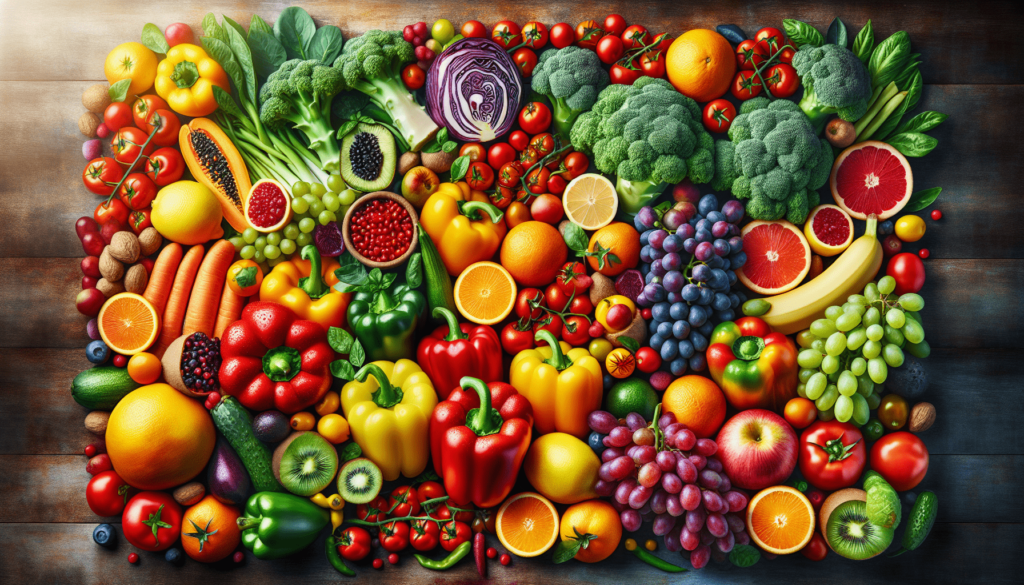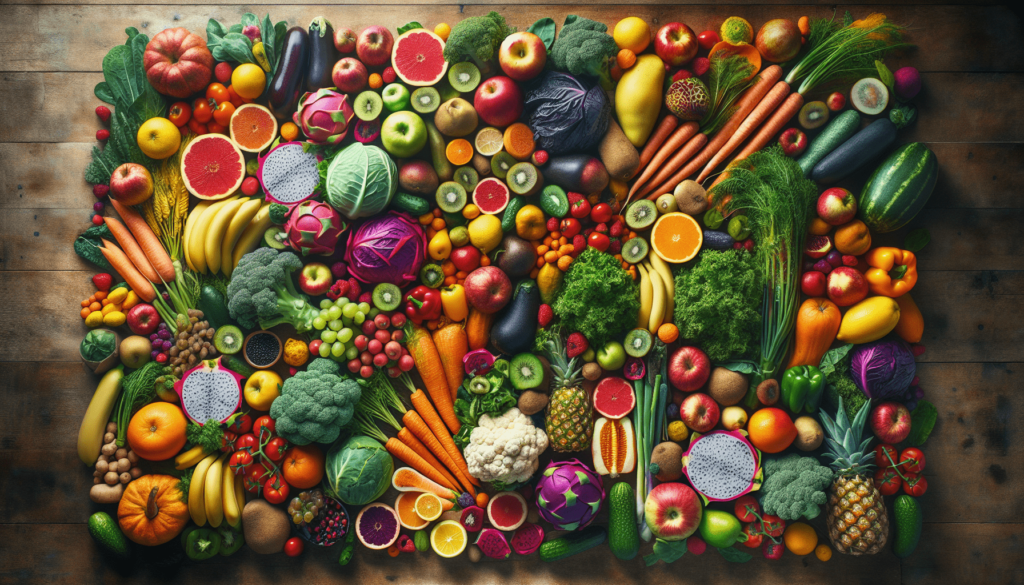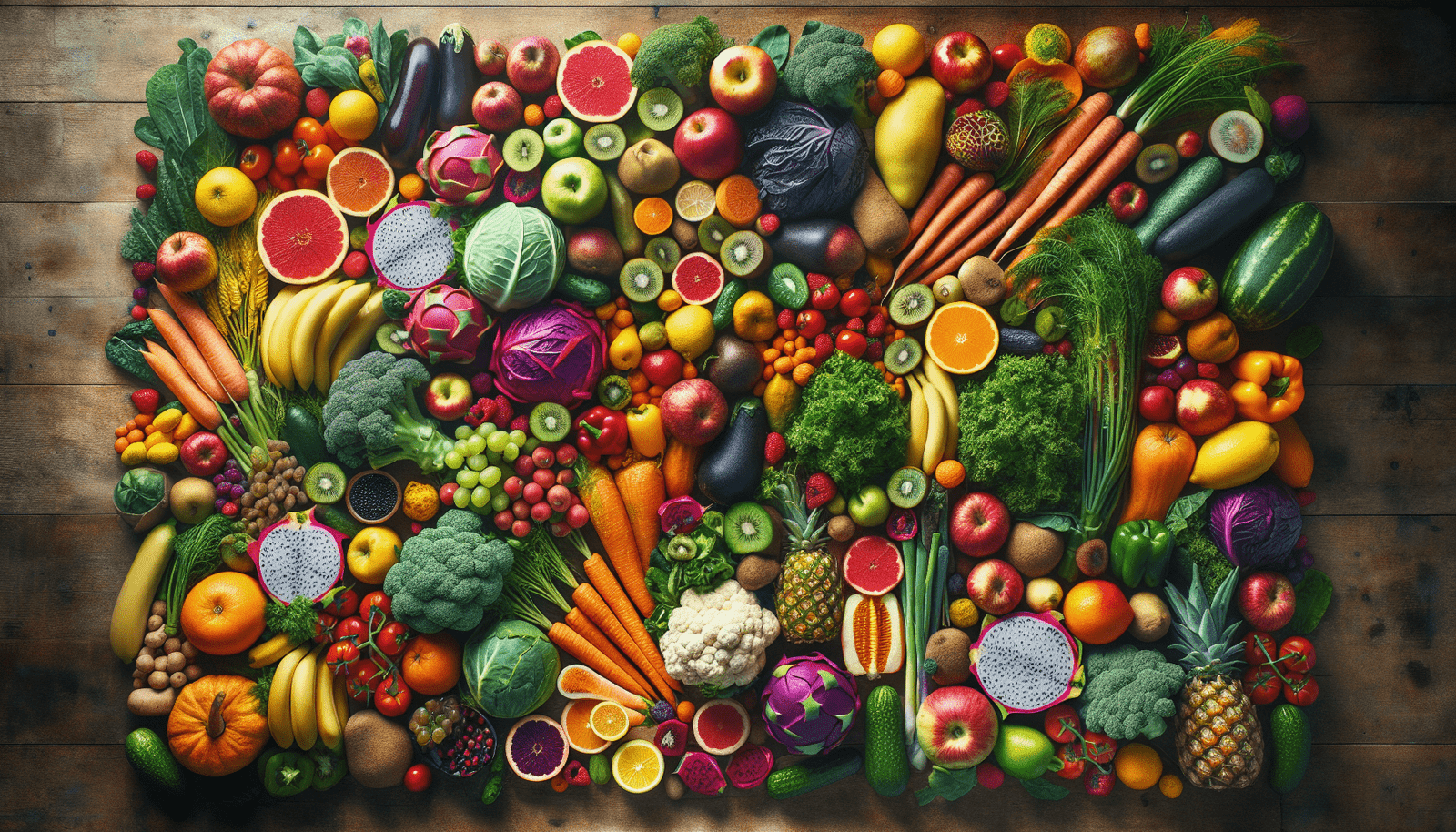Have you been considering transitioning to a vegan diet but unsure of how to ensure you’re getting all the essential nutrients your body needs? The vegan diet has been gaining popularity for its health benefits, environmental impact, and ethical reasons. In this article, you will uncover the nutritional secrets of the vegan diet to help you thrive on a plant-based lifestyle.

Understanding the Basics of a Vegan Diet
Embarking on a vegan diet means eliminating all animal products from your meals, including meat, dairy, eggs, and honey. Instead, you will focus on consuming plant-based foods such as fruits, vegetables, grains, legumes, nuts, and seeds. It’s important to familiarize yourself with vegan alternatives to your favorite animal-based ingredients and to get creative with plant-based recipes.
Transitioning to a Vegan Diet
Transitioning to a vegan diet can be a gradual process. Start by incorporating more plant-based foods into your meals and gradually reducing your consumption of animal products. Experiment with new ingredients and recipes to discover delicious vegan meals that you enjoy. Remember that everyone’s journey to veganism is unique, so be patient and kind to yourself during the transition.
Key Nutrients to Focus on in a Vegan Diet
While a well-planned vegan diet can provide all the essential nutrients your body needs, there are a few key nutrients that you should pay extra attention to when following a plant-based lifestyle. By including a variety of plant-based foods in your diet, you can easily meet your nutritional needs without the need for supplements.
Protein
One of the most common concerns about a vegan diet is where to get enough protein. Plant-based sources of protein include legumes (beans, lentils, chickpeas), tofu, tempeh, seitan, nuts, seeds, and whole grains. By incorporating a variety of these protein-rich foods into your meals, you can easily meet your daily protein requirements.
Iron
Iron is essential for carrying oxygen in the blood and preventing anemia. Plant-based sources of iron include legumes, tofu, tempeh, whole grains, nuts, seeds, and leafy green vegetables. To enhance iron absorption, consume vitamin C-rich foods such as citrus fruits, bell peppers, and strawberries with iron-rich meals.
Calcium
Calcium is essential for bone health, nerve function, and muscle contraction. Plant-based sources of calcium include tofu, fortified plant-based milk, fortified orange juice, almonds, tahini, and leafy green vegetables like kale and bok choy. Aim to include calcium-rich foods in your daily meals to meet your calcium needs.
Vitamin B12
Vitamin B12 is crucial for nerve function and the production of red blood cells. Since vitamin B12 is primarily found in animal products, vegans should consider taking a B12 supplement or consuming fortified foods like plant-based milk, breakfast cereals, and nutritional yeast. Regularly incorporating these fortified foods into your diet can help prevent B12 deficiency.
Omega-3 Fatty Acids
Omega-3 fatty acids are important for brain health, reducing inflammation, and supporting heart health. Plant-based sources of omega-3s include flaxseeds, chia seeds, hemp seeds, walnuts, and algae-based supplements. Including these foods in your meals can help you meet your omega-3 requirements on a vegan diet.
Building Balanced Vegan Meals
To ensure that you’re meeting all your nutritional needs on a vegan diet, focus on creating balanced meals that include a variety of plant-based foods. Aim to include a source of protein, carbohydrates, healthy fats, vitamins, and minerals in each meal to support your overall health and well-being.
Protein: Legumes, Tofu, Tempeh, Seitan
Include a source of protein in each meal, such as beans, lentils, chickpeas, tofu, tempeh, or seitan. These plant-based proteins are versatile and can be incorporated into a wide range of dishes, from stir-fries to salads to soups.
Carbohydrates: Whole Grains, Fruits, Vegetables
Incorporate complex carbohydrates into your meals, such as whole grains (brown rice, quinoa, oats), fruits (berries, bananas, apples), and vegetables (broccoli, sweet potatoes, spinach). Carbohydrates provide energy to fuel your daily activities and support overall health.
Healthy Fats: Nuts, Seeds, Avocado
Include sources of healthy fats in your meals, such as nuts (almonds, walnuts), seeds (chia seeds, flaxseeds), and avocado. Healthy fats are essential for brain function, hormone production, and absorbing fat-soluble vitamins.
Vitamins and Minerals: Leafy Green Vegetables, Berries, Citrus Fruits
Incorporate a variety of colorful fruits and vegetables into your meals to get a wide range of vitamins and minerals. Leafy green vegetables (kale, spinach), berries (blueberries, raspberries), and citrus fruits (oranges, grapefruits) are rich in essential nutrients that support overall health.
Hydration: Water, Herbal Tea, Coconut Water
Stay hydrated throughout the day by drinking plenty of water, herbal tea, and coconut water. Adequate hydration is essential for digestion, circulation, and overall well-being. Aim to drink at least 8-10 cups of water per day to support your health.
Vegan Diet and Athletic Performance
If you’re an athlete or someone who leads an active lifestyle, you may be wondering how a vegan diet can support your athletic performance. Many athletes have successfully thrived on a plant-based diet and have seen improvements in their endurance, recovery, and overall health.
Pre-Workout Nutrition
Before a workout, focus on consuming a balanced meal that includes carbohydrates for energy, protein for muscle repair, and healthy fats for sustained energy. Examples of pre-workout meals for athletes on a vegan diet include oatmeal with berries and almond butter, a tofu scramble with whole-grain toast, or a smoothie with banana, spinach, and protein powder.
Post-Workout Recovery
After a workout, prioritize refueling your body with a combination of carbohydrates and protein to support muscle recovery and replenish glycogen stores. Examples of post-workout meals for athletes on a vegan diet include a tempeh stir-fry with quinoa and vegetables, a chickpea salad with sweet potatoes and avocado, or a protein smoothie with hemp seeds, banana, and almond milk.
Hydration and Electrolytes
During and after exercise, it’s important to stay hydrated and replenish electrolytes lost through sweat. In addition to drinking water, athletes on a vegan diet can consume coconut water, herbal tea, and electrolyte-rich foods like bananas, dried fruit, and leafy green vegetables to support hydration and electrolyte balance.
Supplements for Athletes
While a well-planned vegan diet can provide all the essential nutrients for athletes, there are a few supplements that may be beneficial for optimizing athletic performance. Plant-based athletes may consider taking supplements like creatine, B12, iron, and omega-3 fatty acids to support energy production, muscle function, and recovery.

Vegan Diet for Weight Loss
If you’re looking to lose weight on a vegan diet, there are several strategies you can implement to support your weight loss goals. By focusing on whole, plant-based foods and being mindful of portion sizes, you can achieve sustainable weight loss while nourishing your body with nutrient-dense foods.
Focus on Whole Foods
Choose whole, minimally processed plant-based foods like fruits, vegetables, whole grains, legumes, nuts, and seeds to support weight loss. Whole foods are rich in fiber, vitamins, minerals, and antioxidants that promote satiety, regulate blood sugar levels, and support overall health.
Portion Control
Be mindful of portion sizes when following a vegan diet for weight loss. Measure out servings of grains, legumes, nuts, and seeds to ensure you’re not overeating calorie-dense foods. Incorporate a variety of colorful fruits and vegetables into your meals to increase volume without adding excess calories.
Balanced Meals and Snacks
Create balanced meals and snacks that include a source of protein, carbohydrates, healthy fats, vitamins, and minerals to support weight loss. Examples of weight loss-friendly meals for vegans include a quinoa salad with chickpeas and vegetables, a lentil soup with whole-grain bread, or a fruit and nut smoothie.
Mindful Eating
Practice mindful eating by listening to your body’s hunger and fullness cues, eating slowly, and savoring each bite. Pay attention to how different foods make you feel and choose nutrient-dense foods that nourish your body and support your weight loss goals.
Vegan Diet for Healthy Aging
As you age, it’s important to prioritize your health and well-being by following a balanced and nutritious diet. A vegan diet rich in plant-based foods can support healthy aging by providing essential nutrients that promote longevity, cognitive function, and overall vitality.
Antioxidant-Rich Foods
Include antioxidant-rich foods in your diet to reduce oxidative stress, inflammation, and the risk of chronic diseases associated with aging. Berries, dark leafy greens, nuts, seeds, and colorful vegetables like bell peppers, beets, and carrots are excellent sources of antioxidants that support healthy aging.
Omega-3 Fatty Acids
Incorporate omega-3 fatty acids into your meals to support brain health, reduce inflammation, and lower the risk of cognitive decline. Plant-based sources of omega-3s like flaxseeds, chia seeds, walnuts, and algae-based supplements can be beneficial for maintaining cognitive function and overall well-being as you age.
Fiber-Rich Foods
Include fiber-rich foods in your diet to support digestion, regulate blood sugar levels, and promote heart health. Whole grains, legumes, fruits, vegetables, nuts, and seeds are excellent sources of fiber that support gut health, reduce the risk of chronic diseases, and promote healthy aging.
Vitamin D
Get adequate sunlight exposure and consume vitamin D-rich foods like fortified plant-based milk, fortified orange juice, mushrooms, and supplements to support bone health, immune function, and overall well-being as you age. Vitamin D is essential for calcium absorption, muscle function, and reducing the risk of osteoporosis.
Hydration and Electrolytes
Stay hydrated by drinking plenty of water, herbal tea, and coconut water throughout the day to support cellular function, digestion, and overall health. Adequate hydration and electrolyte balance are essential for healthy aging and maintaining optimal well-being as you grow older.

